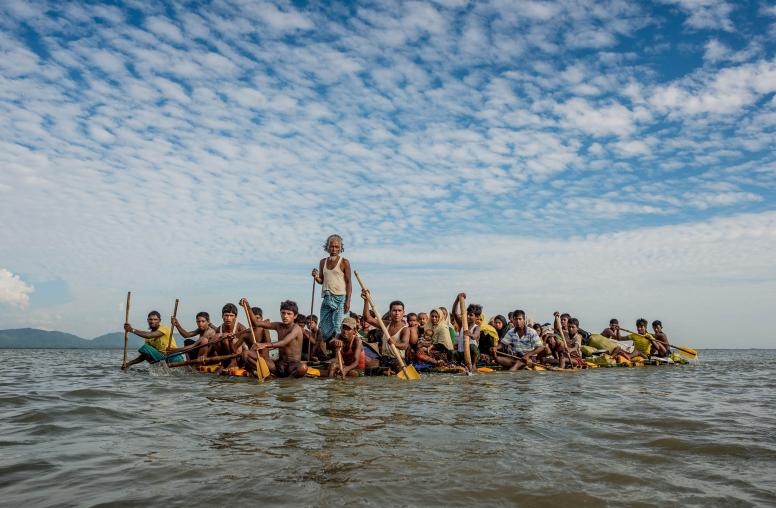Major General Douglas Stone, MNF-I Deputy Commanding General for Detainee Operations
On June 11, USIP hosted Major General Douglas Stone, Multinational Forces-Iraq Deputy Commanding General for Detainee Operations.
Stone's principal operating concept revolves around separating moderates from extremists within the internment facilities, and providing the moderates the intellectual tools that will ultimately empower them to marginalize violent extremists in their society. Over the long term, it is hoped that this approach will allow the vast majority of detainees in coalition force custody to successfully reintegrate back into Iraqi society.
Moderator Daniel Serwer said, “General Stone gave us a close-up view of the difficult issues raised by detention, as well as a good sense of his innovative approach to ensuring that detentions do not undermine the peacebuilding process. A breath of fresh air in an area where serious mistakes have been made in the past.”
For additional background on General Stone's efforts, see "U.S. Remakes Jails in Iraq, but Gains are at Risk," New York Times, 2 June 2008.
Archived Audio
To listen to audio or to view video, please click on the links provided below. You also can right click on the links and choose "Save Target As" or "Download Linked File." This will save the file to your computer and then allow you to play it in your media player directly. More Audio Help.
- Listen to the audio from this event.
01:45:47 - 19.8MB
Speakers
- Major General Douglas M. Stone
Deputy Commanding General, Multi-National Force - Iraq (Detainee Operations); Commanding General, Task Force 134 - Daniel Serwer, Moderator
Vice President, Post-Conflict Peace and Stability Operations, U.S. Institute of Peace




